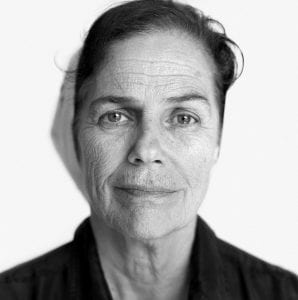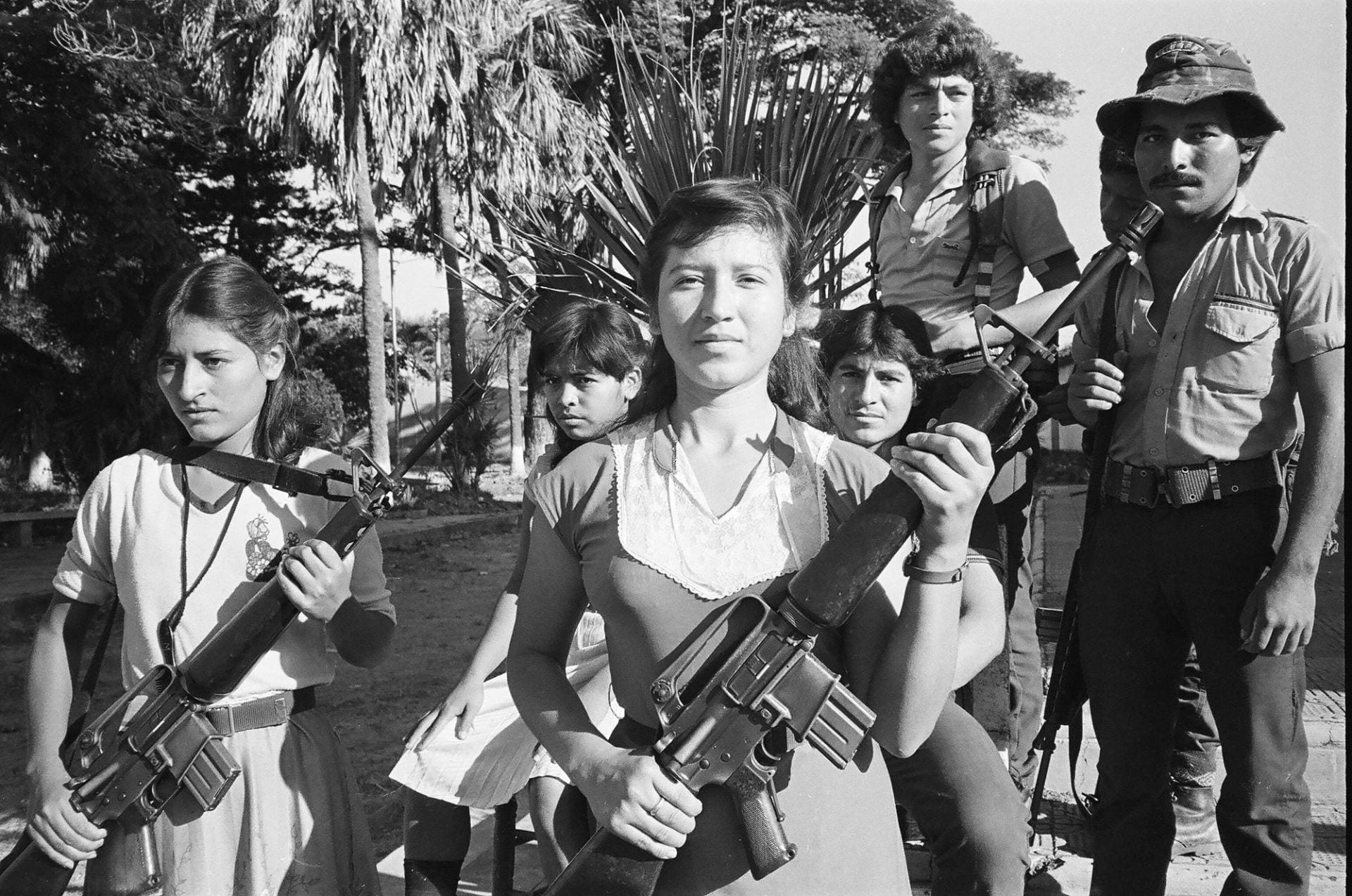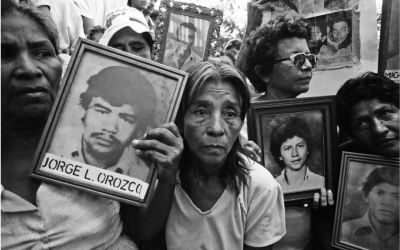
Laura Conte is the mother of Augusto Conte Mac Donnell, arrested and disappeared in Argentina on July 7, 1976. By Marcos Adandia
As editor of the English-language Buenos Aires Herald, I lived through the worst years (1976 to the end of 1979) of the dictatorship in Argentina, and I was constantly astonished by the way the general population accepted military rule. It is true that the media silenced themselves in complicity with, or out of fear of, the special task forces that resembled the Nazi Einsatzgruppen. However, ordinary citizens denied what they could see with their own eyes as leather-jacketed thugs drove their sinister unmarked cars, usually Ford Falcons, through the streets of Buenos Aires, threatening anyone who got in their way with their machine guns. Daylight abductions were also a familiar sight, and word of mouth when a neighbor was taken away spread the terrifying reports about the “Dirty War” far and wide.
The coup on March 24, 1976, that overthrew the elected government of President Estela Martinez de Perón, widow of Juan Domingo Perón, appeared at first to be yet another military takeover in a country accustomed to frequent periods of military rule since 1930. The commanders of the three armed forces announced that they were launching a Process of National Reorganization to save the nation from atheistic communism, which began with a pre-arranged plan to exterminate people the military considered to be “subversive.” But anyone who questioned the military, not just the armed members of revolutionary organizations, was at risk, and thousands of people were abducted from their homes to be tortured and killed.
The Proceso proved to be the most brutal dictatorship in Argentine history.
Despite the evidence of their own eyes, most Argentines managed to pretend that all was well, apart from the ever-present threat of so-called subversion, which could only be imagined, and terrorism, which was very real. This extraordinary apathy in the face of what philosophers term “radical evil” has yet to be accounted for, let alone explained. Notably, however, in an article on the death of Jorge Rafael Videla, the nominal dictator of Argentina from March 24, 1976 to March 29, 1981, the essayist Beatriz Sarlo tackled this painful subject. Sarlo, who describes herself as “a Social-Democrat, former Marxist and ex-Maoist,” breached a taboo in a May 18, 2013, column in La Nación, which was openly and still unapologetically supportive of the military.
How, she asked, was it possible that millions of Argentines could go along with the military in the first years of the dictatorship? Where were the press, the politicians, and the few who resisted; how was it that they changed their attitudes and altered their positions?
She noted that Videla “never repented his actions, never publicly considered them a fatal error.” In my opinion, his belated admission, before he was sentenced to life imprisonment at a trial in Córdoba in 2008, that he was a mass murderer was an act of false bravado. He was serving several life sentences and knew that the re-election of President Cristina Fernández de Kirchner in 2010 meant that he that he would never be pardoned again (as he was by President Carlos Menem) or released from prison.
So he admitted his deeds in what was the opposite of a confession. He acknowledged that under his orders “7,000 to 8,000” people were murdered. He did not admit that they were held in clandestine prisons and their bodies secretly disposed of by cremation or burial in unmarked mass graves, or were thrown, drugged but alive, from military transport planes into the waters of the estuary of the La Plata river or the South Atlantic.
Last year Videla broke a silence of almost three decades when he gave a series of interviews in his comfortable quarters at a military prison at the Campo de Mayo garrison to author and journalist Ceferino Reato. The title of Reato’s book, echoing in Argentine Spanish the Nazi’s “Final Solution,” is Final Disposition (Disposición Final, published by Sudamerica, 2012).
One of the consequences of Videla’s claim of total responsibility for mass murder was that he was punished by being moved to a cell in a civilian-run prison, where he died aged 87 on May 17 of this year. His admission that he ordered the murder of those 7,000 to 8,000 people “in order to defeat subversion” was spurious because he was never fully in charge of the Army, let alone the Navy, which under its commander Emilio Massera not only set up its own torture centers and death camps but also targeted civilian members of Videla’s cabinet for assassination.
The aged dictator’s statements did prompt a public outcry and general condemnation of Videla, but privately, in circles close to the military, he is still admired by people who believe the military “did what was necessary.”
I discovered that there is residual support for the military dictatorship when I wrote a Sunday column from November 2011 until May 26, 2013, for the Buenos Aires Herald, where I was editor from 1968 to the end of 1979.
In response to my columns, the newspaper received and published a number of letters that expressed veiled admiration for the military. In messages to my own e-mail account I encountered utterly vile statements in open support of the dictatorship.
I do not think there is any danger today that the military will return to power. While there are still people who deny the horrors committed during the “Dirty War,” the trials initiated under the administration of the late Nestor Kirchner, following a ruling by the Supreme Court that declared the Menem blanket amnesty unconstitutional, have established beyond any reasonable doubt that massive and horrendous crimes against humanity were committed during the dictatorship.
Memory has been restored. Those who were alive during the horror of the ’70s and ’80s cannot convincingly claim that they did not know what was going on. It is encouraging too, to see that there is finally some movement toward reconciliation through forgiveness. In an article in La Nación, Hector Leís, a former Montonero guerrilla, wrote: “[We] Argentines lost the opportunity to do ourselves a good turn by not knowing how to forgive old man Videla so that he could die in peace at his home with his family.” The column carried the headline: “The task of pardoning the unpardonable.” It aroused such a vitriolic furor against him that Leís, who lives in Brazil and is a professor of philosophy at the federal university of Santa Catarina, said he regretted entering the public forum.
There have been other notable incursions into the no man’s land of reconciliation, which suggest that Leís, who followed in the footsteps of former militants Héctor Schmucler, Oscar del Barco, Pilar Calveiro and a few other intellectuals, is not alone in seeking to restore that part of national memory that relates to actions in the 1970s of the many guerrilla groups that were termed “subversive terrorists” in the lexicon of the dictatorship.
Effectively, Leís acknowledges that the Montoneros, in which he was a combatant unil he escaped to Brazil in 1976, were terrorists, almost as bad as “state terrorists.”
In an interview with Astrid Pikielny in La Nación, he asked for “forgiveness for the suffering caused by my actions. Our madness led to an encounter with madness. In this sense I understand the ill named ‘theory of the two demons’ expressed in Nunca Más by Ernesto Sábato: the two sides of the conflict in the ‘70s were equally blind and mad.”
Leís’ new book, Un testamento de los años 70: Terrorismo. Política y verdad en Argentina, has two prologues, one by Sarlo and the other by Graciela Fernández Meijide, who was a member of the Permanent Assembly for Human Rights during the dictatorship and who served as secretary of the The National Commission on the Disappeared.
Fernández Meijide is also the author of a recently published book Eran humanos, no héroes (Sudamericana), which looks at the “Dirty War” through a different lens. Referring to Leís and other self-critical former guerrillas, also in an interview with Astrid Pikielny, Fernández Meijide emphasized that “every one of them was a militant with direct participation in the armed organizations. I wasn’t.” Pikielny said that Fernández doesn’t accept the Kirchner government’s “epic vision” of the ‘70s guerrillas. Fernández doesn’t believe that “the best of the best” died in the struggle. She argues that both “good and bad” died and “good and bad” survived. Her view has particular force because her 17-year-old son, Pablo, was abducted on Oct. 23, 1976, and remains one of the Argentina’s ten thousand to thirty thousand “desaparecidos.” It is significant that there is not even a generally accepted rough estimate of the number of people seized, tortured, murdered by the military and whose bodies remain unrecovered.
A third book that seeks to restore memory is by Norma Morandini, a senator who ran as a center-left vice-presidential candidate in the 2010 elections. From Guilt to Forgiveness (De la culpa al perdón, Sudamericana) is a passionate appeal for reconciliation and for a national commitment to rebuild democratic society.
“I lived in dark times” she told Cadena 3, a television station in her home city of Córdoba, “and saw my two brothers disappear and how my mother overcame this huge blow. I took with me into exile a generational cemetery: friends, colleagues, neighbors, family members, lovers. It was a banishment that sent me into the depths of suffering, but also allowed me to see more profoundly.”
The blindness of the general population to the horrors of the dictatorship is a malady that has passed. But today in Argentina there is willful blindness to the danger facing democracy as another government, elected but scornful of the rights of minorities, seeks to use its power to change society in its own image. The failure of the press to report what was happening during the dictatorship gave the military carte blanche. While almost totally polarized into pro- and anti-government blocs, the media today have not been silenced and the voices that call for tolerance and reconciliation are being heard.
Robert J. Cox was the editor of the Buenos Aires Herald from 1968-1979. He was awarded the Maria Moors Cabot Prize in 1978. After receiving multiple death threats, he left Argentina and became a 1981 Nieman Fellow at Harvard.
Related Articles
A Search for Justice
In 2004, when I left Harvard and last saw you, I thought I would never learn the truth of what exactly happened to Carlos Horacio in the horrendous holocaust of the Palace of Justice in Bogotá. Yet fate was holding a tremendous surprise for my daughters and me, filled with…
Memory: Editor’s Letter
Editor's Letter Memory Irma Flaquer’s image as a 22-year-old Guatemalan reporter stares from the pages of a 1960 Time magazine, her eyes blackened by a government mob that didn’t like her feisty stance. She never gave up, fighting with her pen against the long...
A Search for Justice in El Salvador: One Legacy of Ignacio Martín-Baró
In the small rural town of Arcatao, Chalatenango, Rosa Rivera clung to the hope that one day she would find the remains of her disappeared mother and father and lay them to rest in peace. Others sought to exhume mass graves hoping to recover bodies of nearly 1,000 relatives massacred in the Río Sumpul. …




